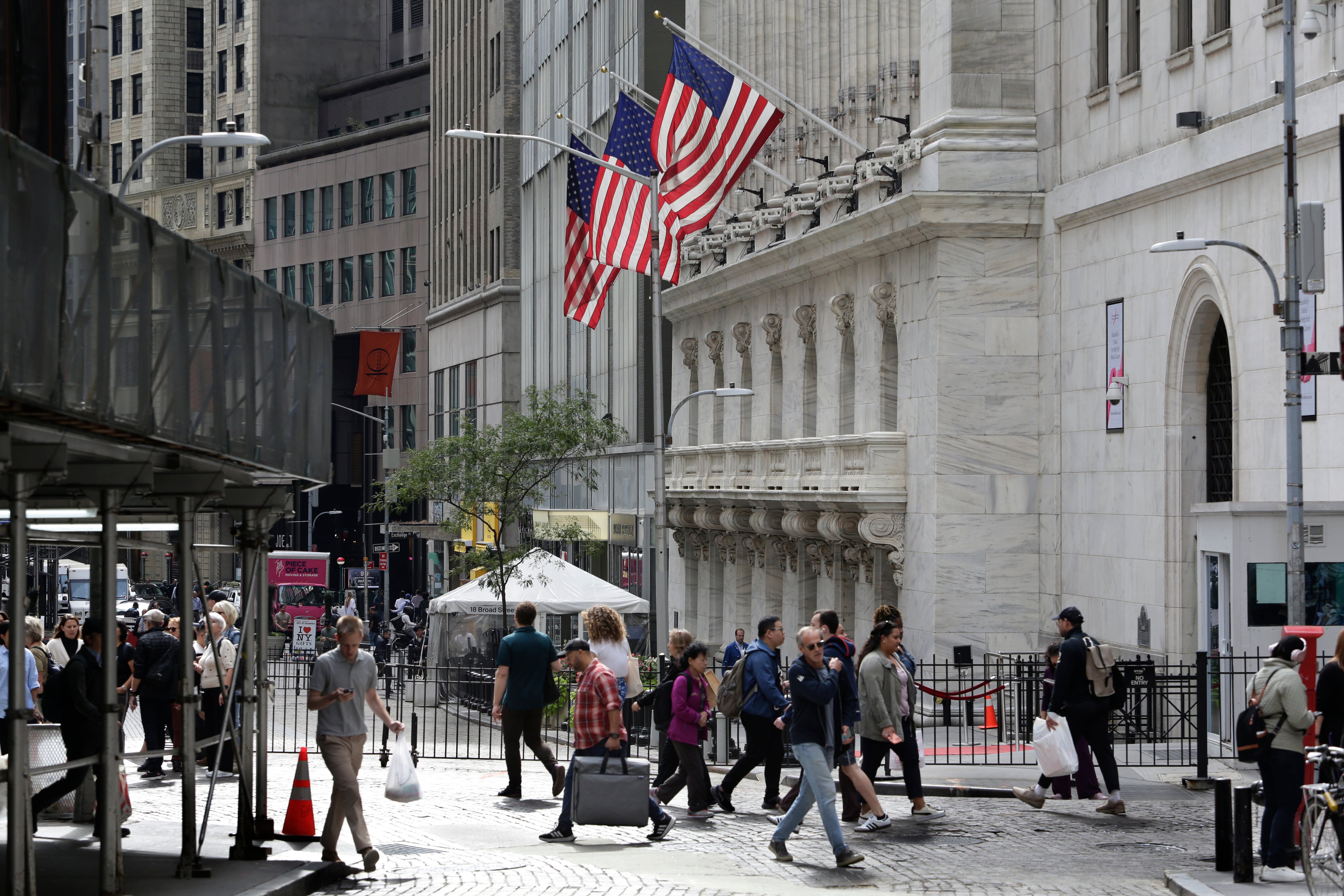NEW YORK (AP) — Crude prices are jumping Thursday on worries that worsening tensions in the Middle East could disrupt the global flow of oil, while U.S. stocks pull back further from their records.
The S&P 500 was edging down by 0.4% in afternoon trading after a shaky week knocked the index off its all-time high set on Monday. The Dow Jones Industrial Average was down 251 points, or 0.6%, as of 3 p.m. Eastern time, and the Nasdaq composite was 0.3% lower.
Stocks sank as oil prices kept rising amid the world's wait to see how Israel will respond to Iran’s missile attack from Tuesday. A barrel of Brent crude, the international standard, leaped 5% to settle at $77.62 after starting the week below $72. It's potentially on track for its biggest weekly gain in nearly two years.
Oil prices rose after President Joe Biden suggested on Thursday that U.S. and Israeli officials were discussing a possible strike by Israel against Iranian oil facilities.
“We’re in discussion of that,” Biden said to reporters. He added, “I think that would be a little – anyway,” without finishing the thought. Biden also said he doesn’t expect Israel to retaliate immediately against Iran.
Iran is a major producer of oil, and a worry is that a broadening of the fighting could not only choke off Iran's flows to China but also affect neighboring countries that are integral to the flow of crude. Helping to keep prices in check, though, are signals that supplies of oil remain ample at the moment. Brent last month hit its lowest price in nearly three years.
In the bond market, Treasury yields rose after reports suggested the U.S. economy remains solid. One showed growth for real estate, health care and other U.S. services businesses accelerated to its strongest pace since February 2023 and topped economists' expectations, though employment trends may be slowing.
A separate report, meanwhile, suggested the number of layoffs across the United States remains relatively low. Slightly more workers filed for unemployment benefits last week, but the number remains low compared with history.
Outside of this week’s worries about the Middle East, the dominant question hanging over Wall Street has been whether the job market will continue to hold up after the Federal Reserve earlier kept interest rates at a two-decade high. The Fed wanted to press the brake hard enough on the economy to stamp out high inflation.
Stocks are near their records because of hopes the U.S. economy will indeed continue to grow, now that the Federal Reserve is cutting interest rates to give it more juice. The Fed last month lowered its main interest rate for the first time in more than four years and indicated more cuts will arrive through next year.
China is also talking about more aid for its economy, and “when the top policymakers in the world’s two largest economies are determined to support economic growth, it pays to listen,” according to Evan Brown, head of multi-asset strategy at UBS Asset Management. He suggests not underestimating policy makers' resolve to cut off the risk of a recession.
The job market could use help, as U.S. hiring has been slowing. The U.S. government will release the latest monthly update on the jobs market on Friday, and economists expect it to show hiring slowed slightly from August's pace.
On Wall Street, Levi Strauss dropped 7.4% despite reporting better profit for the latest quarter than analysts expected. The denim company’s revenue fell short of forecasts, and it said it’s considering what to do with its Dockers brand, whose revenue fell 7% last quarter.
The yield on the 10-year Treasury rose to 3.85% from 3.78% late Wednesday. The two-year yield, which moves more closely with expectations for what the Fed will do with overnight rates, rose to 3.71% from 3.64%.
Yields have been rising as as traders pare their bets for how much the Federal Reserve will cut interest rates by at its next meeting in November. After many were earlier forecasting another deeper-than-usual cut of half a percentage point, they're now betting on a 65% chance the Fed will cut by just a quarter of a percentage point, according to data from CME Group.
In stock markets abroad, Japan’s Nikkei 225 jumped 2% as its sharp swings continue amid speculation about when the country’s central bank may hike interest rates next.
Hong Kong’s Hang Seng has also been swerving, and it gave back 1.5%. Stocks in China have largely been surging on hopes for a flurry of recent announcements from Beijing to prop up the world’s second-largest economy. With Shanghai and other markets in China closed for a weeklong holiday, trading has crowded into Hong Kong.
___
AP Business Writers Matt Ott and Elaine Kurtenbach contributed.









